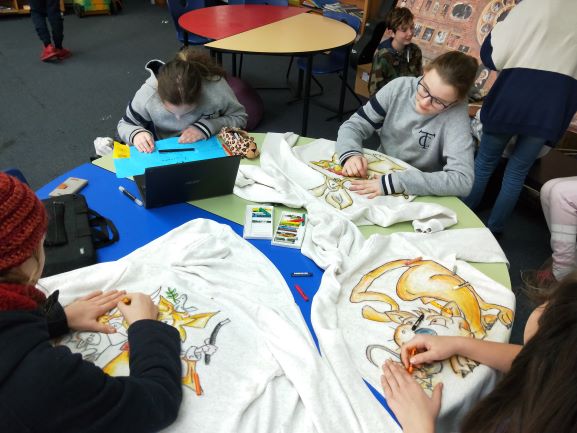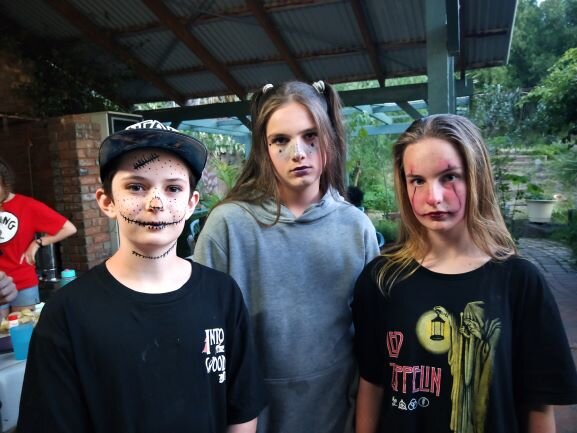Meeting the needs of adolescents
The program feeds the adolescent’s need to know the math, science, humanities and language work they do in the classroom translates into what they will need in their everyday lives. It needs to be meaningful to them. That is why the curriculum is experiential; it is designed to bring active and physical participation into the academics. We do not rely on textbooks for curriculum or top-down “everyone-at-the-same-time” instruction.
The basic needs of adolescents
Each adolescent is going through a profound, intensive and rapid development both physically and emotionally. With those physical and emotional changes come specific needs that differ from those of primary-aged students. Adolescents need to understand their place in adult and peer society; to begin their journey to independence – socially and economically; to define, understand and express themselves; to experience both leadership and service; to contend directly with social justice and environmental issues; and to discover their own defined structures and limits, built through guided risk-taking – emotionally, physically and academically.
Adolescents want to see their own role in everything: they are active doers, not passive watchers or listeners.
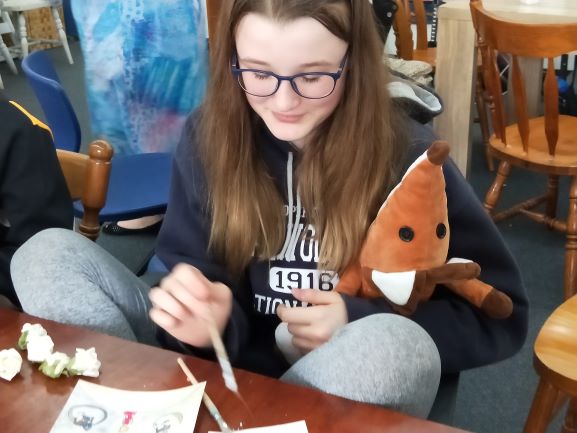
Real work – authentic engagement in physical labour
Authentic activities where physical labour is integrated with academic work provide exposure to real-world business activities and assist in developing skills in planning, scheduling, accounting, purchasing, construction and management. They nurture business, planning and entrepreneurial skills and ensure interaction with peers and with the adult public.
Mastery is best achieved through exploration, imitation, repetition, trial and error – it comes from giving the adolescent enough information to safely seek a solution on their own. In pursuing solutions, the adolescent becomes fully engaged in the work and task at hand, enjoying the physical labour while applying mental calculations they have devised. Minimal learning is gained from tasks that “have” to be performed, but immense outcomes arise from tasks that “need” to be performed - on the farm, in the kitchen, for the theatre. These provide the combination of manual and intellectual work - head and hands together - that allows self-construction.
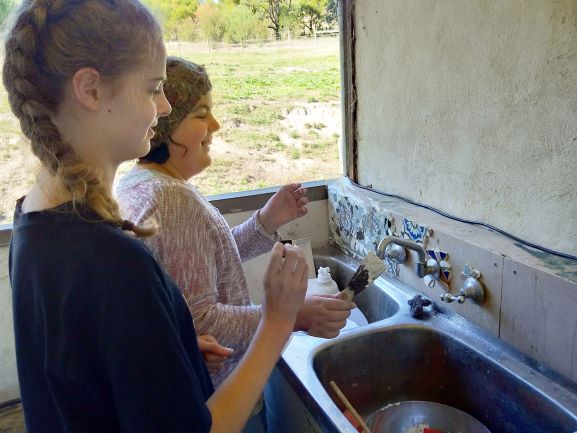
Work with meaning and outcomes
Building a fence to allow goats into the gully to eat the blackberries; constructing a pergola using power tools; building a duck-pond from recycled footpath; cooking lunch for 30 people; establishing a poetry installation for others to view; performing a VCE play text at schools throughout Victoria; catching public transport and chasing treasure hunts through the city; fighting a civil war in class and ending it with a Peace and Reconciliation Commission; debating issues, philosophies and social injustices; climbing the Grampians to study geological formations; designing bean-bags to calculate volumes of irregular objects; creating entertainment along with aged care residents; exploring mental health with survivors of the system; living the life of a refugee for 48 hours; helping replace the prolapsed uterus of a cow after birth... (we can’t promise repeat performances of the last one).
These are all authentic work examples experienced and led by MAP students.
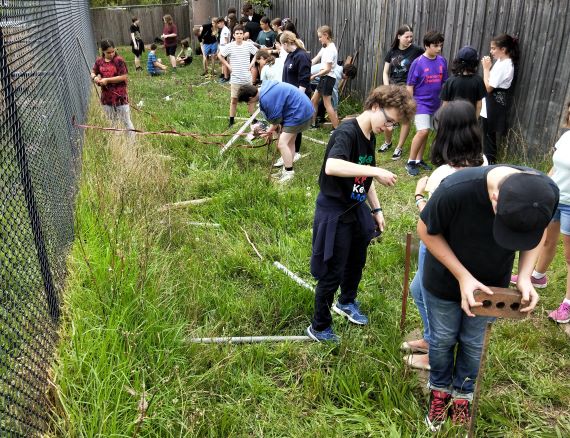
Adolescents live lives of great drama
The adolescent goes through physical and emotional changes more acute, concentrated and overwhelming than at any other stage of development since 0 - 3 years old. They are developing personal understandings of social interactions and reactions – their senses on hyperalert. Reactions that may seem out-of-control to adults are a necessary experience for the adolescent. These heightened reactions focus both inward and outward, creating drama equally around personal and global issues.
Our job is not to promote particular moral and ethical stances, but it is necessary to support students to develop their beliefs beyond social media opinion and misinformation. MAP nurtures personal dignity and social justice, providing a place for fully rounded discussion and debate. Giving adolescents the intellectual materials and approaches to explore and answer moral and ethical dilemmas to help make fully informed choices is one of the best gifts that we can - and do - provide.
Trust and respect for young adults
The adult in the adolescent community takes on many different roles: teacher, guide, coach, advisor, role model, material, and expert. Staff model values of empathy, compassion, and acceptance of individual differences. They encourage students to be courteous and kind, and bring them together in collaborative activities to foster teamwork, responsibility, self-discipline and respect. The close relationship between staff and students is critical - adult guides work side by side with the student to serve as experts offering support, suggestion and feedback; maintaining respect and positivity in both directions. The relationship between the adult and the adolescent is one of respect, understanding and love. MAP@TC employs an extra staff member to lower the standard student-teacher ratio, maximising individualised attention for all students.
